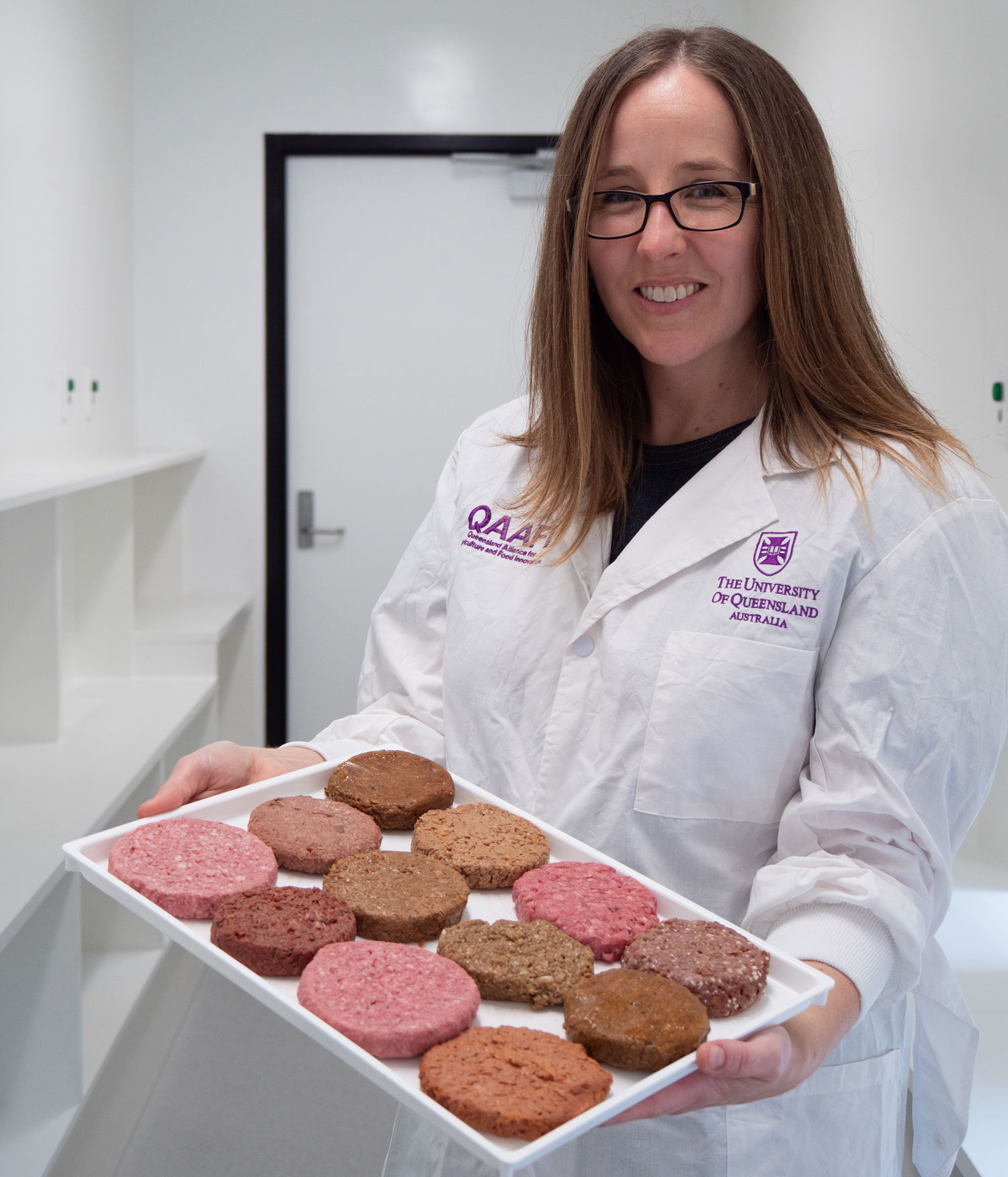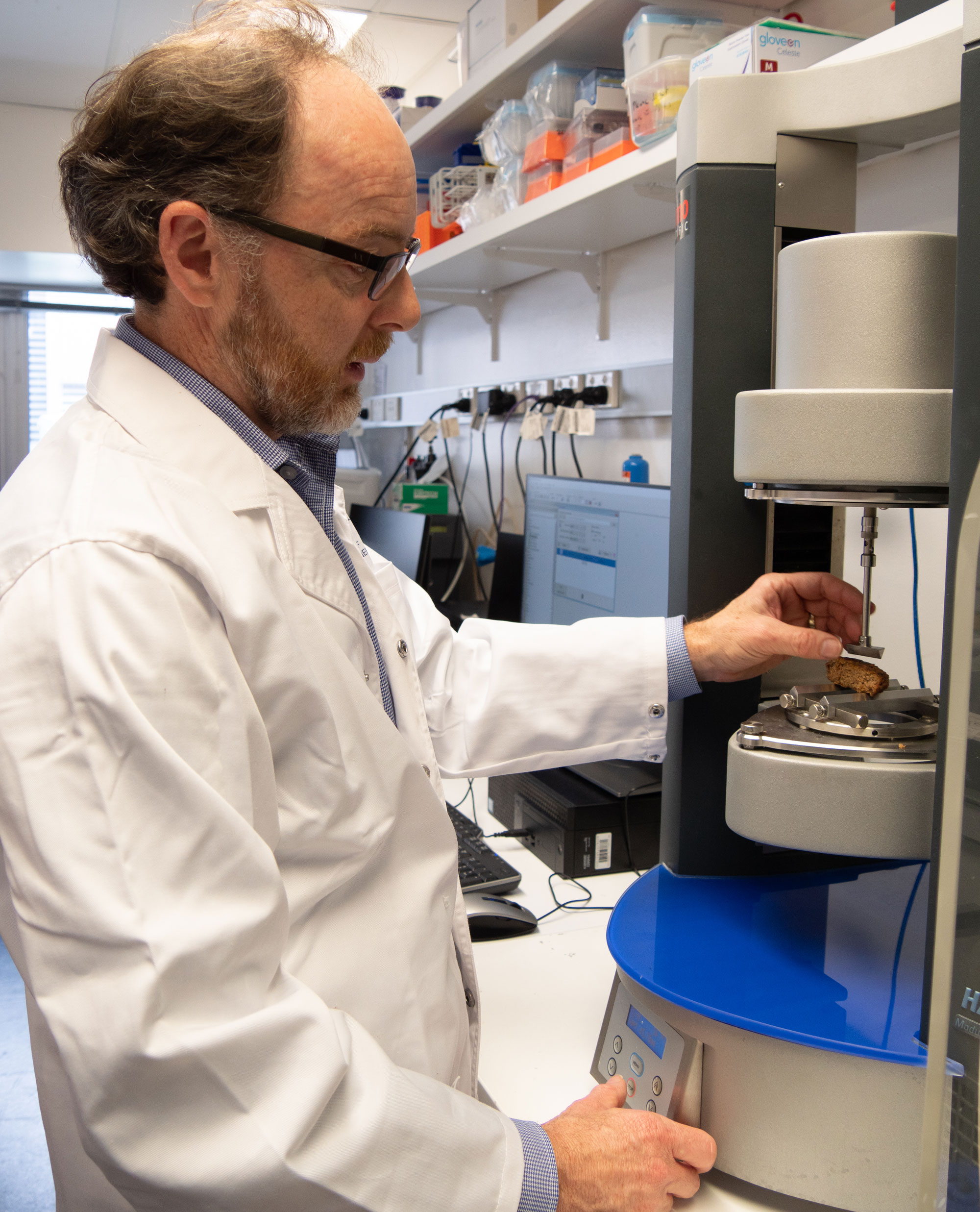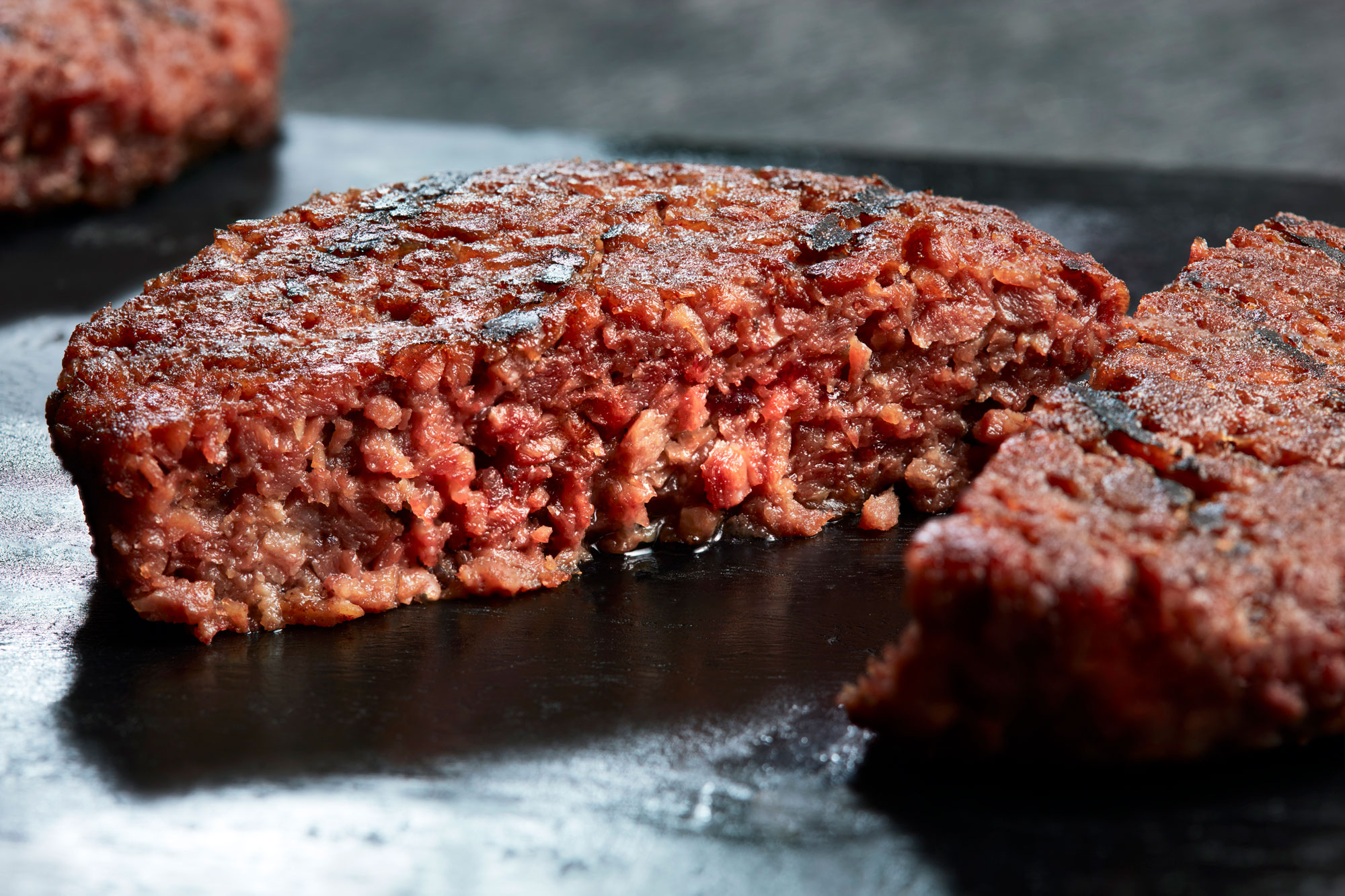For many people, nothing beats the taste and texture of a big juicy burger, but how do you recreate that eating experience with sustainable plant-based protein?
That is the culinary quest of University of Queensland engineers and food scientists as part of a three-year Australian Research Council project in partnership with US-based Motif FoodWorks, Inc., a food technology company on a mission to make plant-based food more nutritious and taste better.
Professor Jason Stokes from UQ’s School of Chemical Engineering said attributes like taste, texture, and smell combined are primary drivers for consumers when considering a meat-free option.
"It's not just the taste, it has to be the texture as well, so the team wanted to understand the mechanics that occur during eating and stimulate them in a laboratory," Professor Stokes said.

“People want to continue to eat meat but supplement their diet with a plant-based protein for environmental and sustainable reasons.
“They’ve started to demand quite a bit from the product, and want it to have the same characteristics as a normal meat experience while also being healthy.“
Queensland Alliance for Agriculture and Food Innovation’s (QAAFI) Associate Professor Heather Smyth said innovations around texture mechanics were the key to creating the best plant-based eating experience.
“Are there different ways of pre-treating plant protein in a way that makes it behave more meat-like in the first place, rather than just compensating burger formulations with various synthetic additives?” Dr Smyth said.
“This might include fermenting them, extracting them differently or structurally modifying the plant-protein.

“Making the plant protein behave differently as an ingredient is really the space where we can have those breakthroughs, and already we’re seeing some interesting results.”
“Through this work with the UQ team we’re bringing together the physics and sensory aspects of eating,” Dr Stefan Baier, Head of Food Science at Motif FoodWorks said.
“This project will unlock the secrets of food to help us design plant-based options that live up to the taste and texture expectations of consumers.”
“We really have been leading this area of research for some time and that’s why companies like Motif and others have come to us in Australia, even though we’re a long way away from where they do their work,” Professor Stokes said.
“The landscape’s changed and people now recognise the challenges in food research, and they’re large challenges in terms of how we perceive food and how we understand food, and rationally design and engineer their microstructure.”
It’s a challenge the team will tackle with relish.

Contacts: Associate Professor Heather Smyth, The University of Queensland, E: h.smyth@uq.edu.au, T: +61 (0)7 3443 2469 or M: 0468 732 394; Prof Jason Stokes, UQ School of Chemical Engineering, E: jason.stokes@uq.edu.au, T: +61 (0)7 3365 4361; Julia Dacri, Motif FoodWorks, E: jdacri@motiffoodworks.com, T: (+1) 508-868-9101; or Natalie MacGregor, UQ Communications, E: communications@uq.edu.au, T: +61 (0)409 135 651.
Images and videos are available for download via Dropbox here.
The Queensland Alliance for Agriculture and Food Innovation is a research institute at The University of Queensland, established with and supported by the Queensland Department of Primary Industries.




